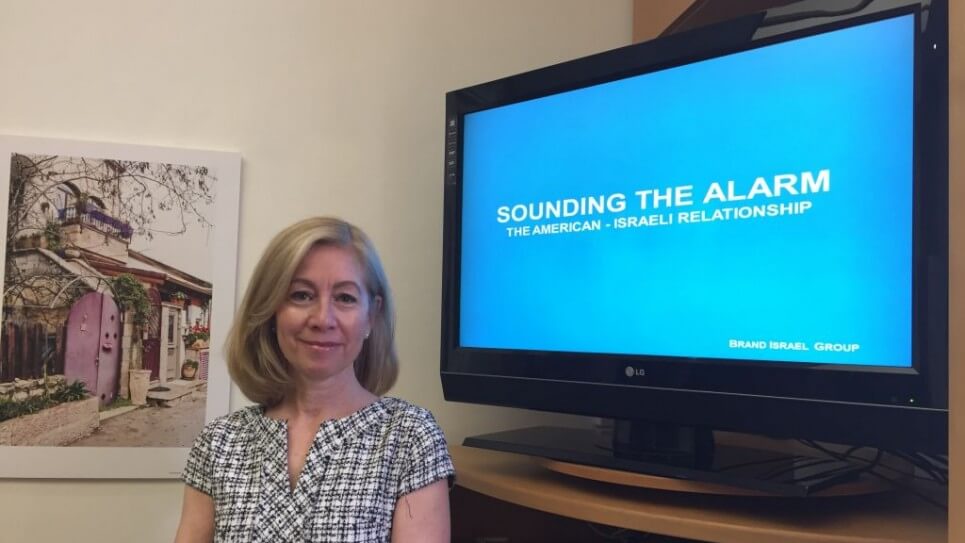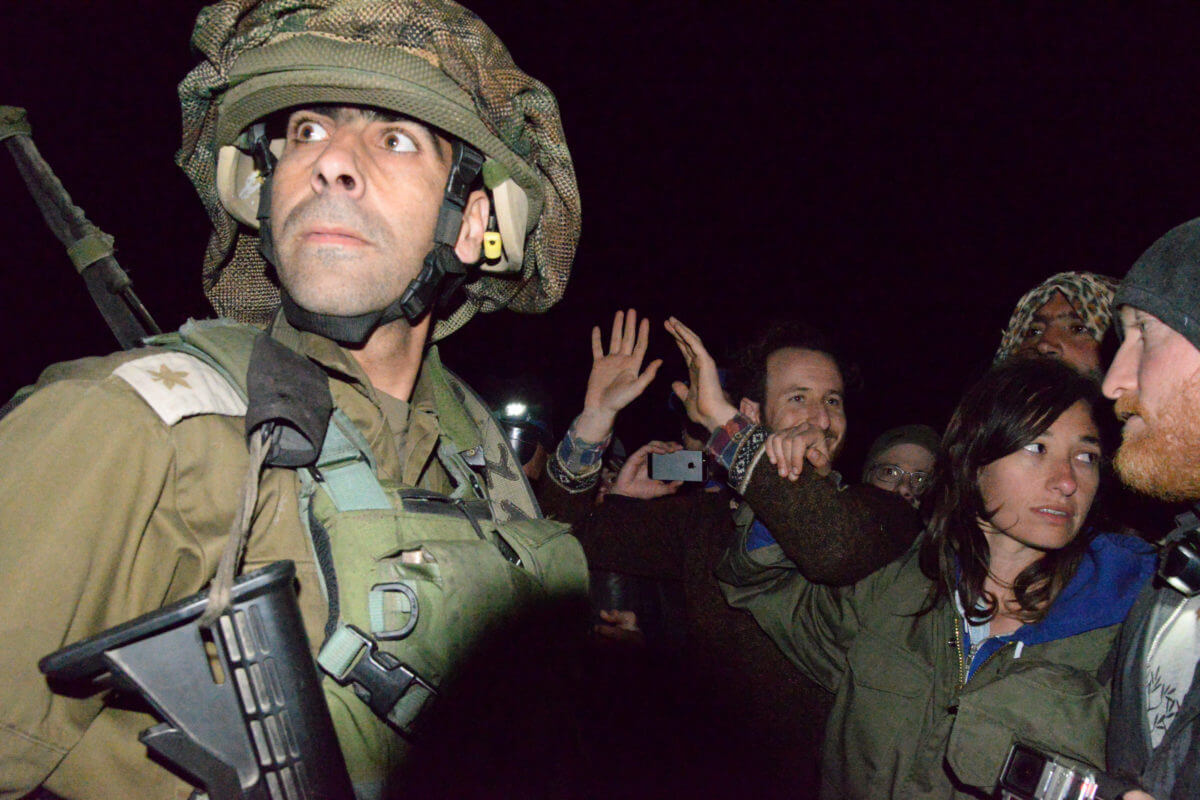In October 2000, Thom Yorke of Radiohead was moved to dedicate his song Karma Police to the memory of Muhammad al-Durra, killed in Gaza. That performance changed the life of Jack Gain, who now appeals to the band to cancel a gig in Tel Aviv in July out of solidarity with the Palestinian boycott campaign.
On 50th anniversary of its occupation, Gaza is a community on edge of a health crisis. Drinking water in Gaza has become largely unavailable. Children have shown signs of water related diseases and permanent organ damage due to high levels of ingested chemicals from what little water is available. Recently, UNRWA indicated that 87 percent of residents live below the poverty line.
Among the general US population, the number of those “unreachable” by Israel is 9 percent, but among Jewish college students the number is much higher 13 percent. And that is a “national security issue” for Israel’s future, says Fern Oppenheim of the Brand Israel Group.
Al Quds TV reporter Linda Shalash has been targeted many times by the Israeli military while wearing the identifiable blue flak jacket with “PRESS” in large print. Still, she writes, “I believe from the bottom of my heart that sharing news stories from Palestine with people around the world is the most powerful way to mobilize resistance and cripple the oppressive, ethnocratic regime. I appreciate all that Mondoweiss does to multiply the impact of reporters like me. If you agree that we must increase the numbers and passion of people worldwide who challenge injustice in Palestine, join me in supporting Mondoweiss.”
Ismail Zeyada, a Dutch citizen of Palestinian origin, has started a civil lawsuit holding two Israeli commanders responsible for the attack on his family home in Gaza during Operation Protective Edge. Six of Ziada’s family members were killed in the July 2014 attack: his mother (70), three of his brothers, his sister-in-law and a 12-year old nephew. Zeyada’s attorney, well-known human rights lawyer Liesbeth Zegveld, says, “You can’t bomb a house inhabited by civilians. Deliberately killing six of them, without necessity, is considered a war crime.”
A new study titled, “Sounding the Alarm: The American-Israeli Relationship” by an American Zionist group says that Israeli PR (or hasbara) isn’t working, and the more Americans learn about Israel, the less favorably they feel about the country. The report says that Americans have learned a lot more about Israel since 2010, but that knowledge has fostered the country’s unfavorable reputation, and fed the “delegitimization” campaign, because Americans increasingly feel that Israel does not share their values.
Challenging Benjamin Netanyahu from the left, Israeli labor leader Ehud Barak says that it is urgent that Israel allow the establishment of a Palestinian state– but he assures an Israeli audience that the state will be “non-viable,” because it is demilitarized and completely surrounded by Israeli forces.
Moriah Ella Mason participated in the Sumud Freedom Camp last month rebuilding a Palestinian Bedouin village in the South Hebron Hills with more than 100 Jewish activists. Mason traveled with her father, and the two were separated during an army raid on the village, “In one of the scariest moments, I watched the live stream as the soldiers began to cut down our large tent while a group of our activists sat inside, chanting and singing in Hebrew and English. Later my dad would tell me he was standing in a separate blockade outside the tent as the soldiers cut the fabric and tore it down around the people inside, punching several through the fabric in the process. That was the hardest part for him. Witnessing this violence. And as horrible as this violence was, the fact that it was limited to punching, pushing, and choking was a result of the privilege we held as international Jews. When Palestinians protest alone, the IDF typically uses tear gas, rubber bullets, mass arrests, and even live fire.”
Iran today is not a unified, expansionist juggernaut, but an increasingly corrupt, discredited regime that faces rising opposition. But U.S. policy reflects the Israeli and Saudi claim that Iran is supposedly unified, powerful and expanding, so it must be confronted everywhere.
George Smith shares the history of Naomi Shemer’s song Yerushalayim Shel Zahav (Jerusalem of Gold) which became Israel’s unofficial second national anthem soon after if debuted on the eve of the 1967 war. Smith writes, “In the case of Jerusalem of Gold, no matter who sings it, the taint of Jewish supremacism just can’t be avoided. It’s intrinsic to Shemer’s lyrics.”









